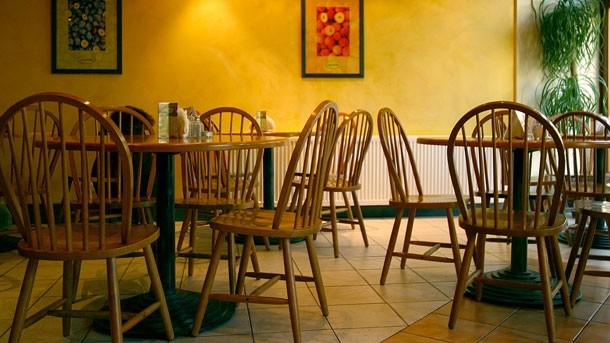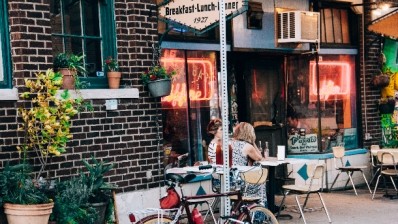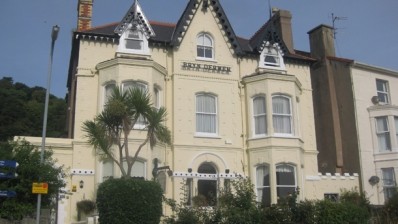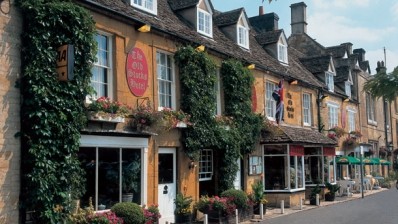Property: Buying a restaurant

It goes without saying that before you start looking for a restaurant property, you need to have a robust business plan in place with a budget that takes into account how much you can afford to spend and what sort of return you expect to get from your business.
“The best way to work out your budget when buying a restaurant property is to think about the areas you would like to be in,” says Ross Kirton, a director in Colliers International’s licensed and leisure team.
“You should also take in to consideration what average weekly takings are you expecting to achieve, this will ultimately drive what you can afford to pay.”
Don’t forget to factor in the additional costs associated with buying a property or business – like stamp duty, advisory fees for solicitors and accountants and rent deposit bonds such as leaseholds.
Unless you plan on taking over a going concern, you also need to think about how much you will need to spend on renovations, equipment, furniture and branding.
“Consider your branding concept and how this might impact on your budget. The more heavily-branded your concept is, the more this will influence the property you buy,” Kirton explains.
“Also consider what specialist equipment your concept requires. For example, a woodfired pizza oven would be a big cost but could be vital to the success of your restaurant concept.”
Specialist help
With your budget set out and your business plan firmed up, it’s time to hit the road and start viewing properties. Many restaurant deals are transacted off-market, so it is a good idea to start by registering with specialist agents.
“There are various agents that cover the restaurant market and if you are looking for a property you should be out there speaking to them and advising them of what your requirements are, specifically location, type of business, scale of business, what your budget is,” says Graham Campbell, head of restaurants at Fleurets.
“With the growth of the internet everything is now very accessible from computers and it is easy to go on various websites to check what is available, but it is still very important that you speak with the various agents so they have a clear understanding of what you are after, where you are after it and how much money you have to invest in any given property.”
You will also need to enlist the help of a solicitor to assist you with the legal aspects of buying a property.
Location, location, location
Once you start your search, it is very important to keep location at the forefront of your mind. Your choice of location will very much depend on the sort of business you want to operate –a successful all-day restaurant might be better off on the high street surrounded by businesses to support its breakfast and lunchtime trade, for example, while a neighbourhood bistro could be better suited to a suburban location and a destination restaurant might thrive in the countryside.
However, whether you choose a city, suburban or rural location, it is vital to establish exactly where your trade would come from. Kirton recommends that you ask yourself the following questions:
- Does the area have good evening and weekend trade potential?
- If in the city centre, is it close to good transport links? Or if rural, is there car parking available?
- Does it benefit from tourism or local footfall?
- What is the demographic of the local area?
- What are the competing restaurant and leisure outlets nearby, what is their business model and how are they trading?
- Is there are any future development planned which could impact on restaurants in the area
“Asking all these questions when considering a location will help you to make an informed decision,” he says.
Do your research
When viewing potential properties, there are even more questions to ask. Although some vendors might be reluctant to disclose trading figures, Campbell says it is important to get your hands on as much information about the current business as possible.
“I would at least be trying to get some indication of the turnover, the profitability of the unit,” he says. “If you are buying an existing business you are going to need to have an understanding of the costs associated with it, such as utility rates.”
It important to keep in mind that past performance is no guarantee of future profitability, so ask as many questions as you can to establish a clear understanding of what trade the current business relies on, and whether you would be able to retain and build on that trade.
For example, is there a particular time when the property does a booming trade and would you be able to serve at that time? Does the current operator have a particular relationship with a business or society that comes and dines there every week and once he leaves the business they won’t come?
“It is really important to get into the nuts and bolts of the business to understand where the trade is coming from and what the potential is,” says Campbell.
You should also consider the potential costs - such as rents, utilities and staffing – associated with the restaurant. “If there is a lease agreement you should get a clear understanding of your obligations under the lease, and make sure the business you are proposing to run complies with the lease terms,” Campbell adds.
Structural survey
Once you have established that the business suits your need and is a realistic prospect financially, you need to carry out a structural survey to check the physical condition of the restaurant.
“Most leases for restaurants are for full repairing and insuring which means that irrespective of the condition that you take the property, you can still be obligated to take on repairs,” says Campbell.
“A surveyor will be able to advise you on any likely repair work that you might be obligate to undertake, which will be a key point that you can bring into any negotiation when finalising a price for that business.”
Finally, you will have to carry out legal checks with the help of your solicitor, and establish the exact conditions of the sale agreement. “You need to agree what inventory you are going to be buying, what you will own, what will be leased and what will be third party,” Campbell explains.





















